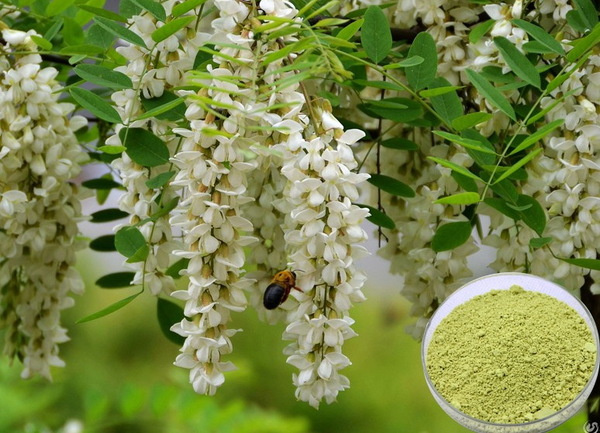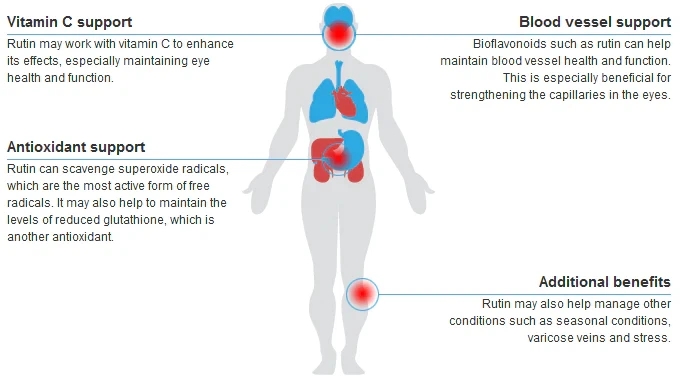What Is Rutin?
Rutin powder is the rutinoside of the flavonol compound quercetin, often found in sophora rice, tartary buckwheat, catalpa leaves, tomato stems, leaves and seed shells, etc., in jujube, hawthorn, ginkgo, wolfberry, motherwort, chai Hu, Prunella vulgaris, Aloe, Jiaogulan, etc. all contain rutin. The main source of our rutin is Sophora japonica, the content is as high as 90%. It has the effect of reducing the permeability and fragility of capillaries. As a natural sunscreen, it can effectively prevent ultraviolet radiation.
The free radical scavenging rate of rutin extracted from Sophora japonica can reach 40% to 70%, and it is widely used in medicine and health products, new edible oils, cold drinks, beverages, cakes, processed meat products, processed aquatic products, etc.

Physical properties of rutin
The color of rutin is light yellow to grass yellow, the melting point is 176-8°C, it is insoluble in cold water, soluble in hot water, methanol, ethanol, pyridine, easily soluble in alkaline water, and dilute solution meets ferric chloride It is green in color and has no odor.
Pharmacological effects of rutin:
Rutin powder belongs to vitamin drugs, which can reduce the permeability and fragility of capillaries, effectively maintain the normal elasticity of capillaries, and treat hypertension, cerebral hemorrhage, hemorrhagic purpura, etc.
1. Anti-radiation effect
Rutin powder has a strong ability to absorb ultraviolet rays and X-rays. It is a natural sunscreen and can absorb 98% of ultraviolet rays.
2. Anti-free radical effect
Adding rutin extract can scavenge the activity of free radicals in cells, delay skin aging, and supplement the nutrients needed by the skin.
3. Anti-inflammatory effect
Rutin has a vitamin P-like effect, which can maintain the resistance of blood vessels, reduce permeability, reduce fragility, and can also resist viruses and reduce fat.

Uses of Rutin:
1. Food coloring and antioxidant: Rutin powder is used in nutritional supplements to make cold drinks, beverages, cakes, processed meat products, processed aquatic products, etc.
2. Vitamin drugs: tablets, capsules and injections of rutin for clinical treatment of cardiovascular diseases;
3. Cosmetic additives: Sophora japonica extract rutin is used as an additive for whitening and sun protection.